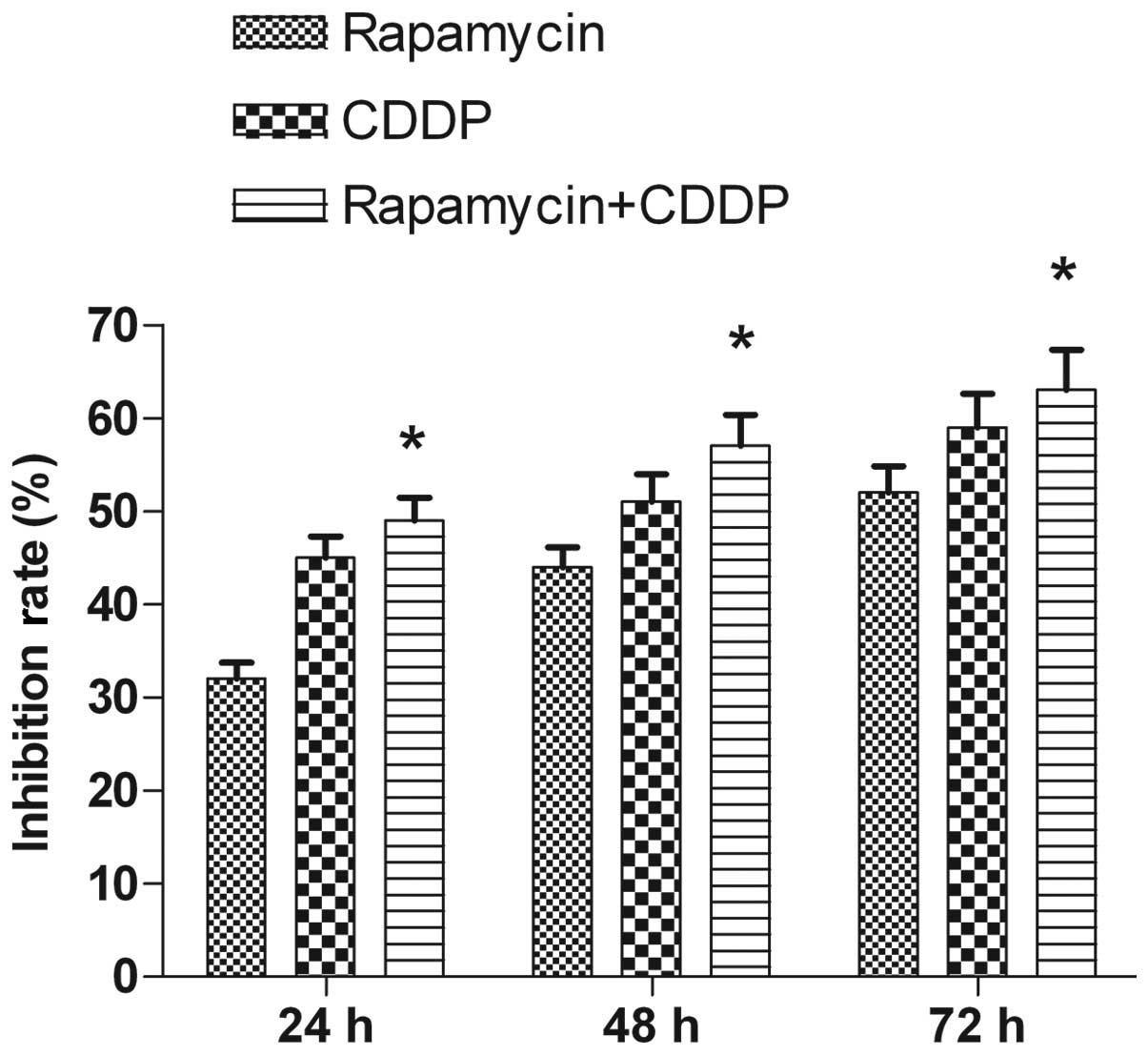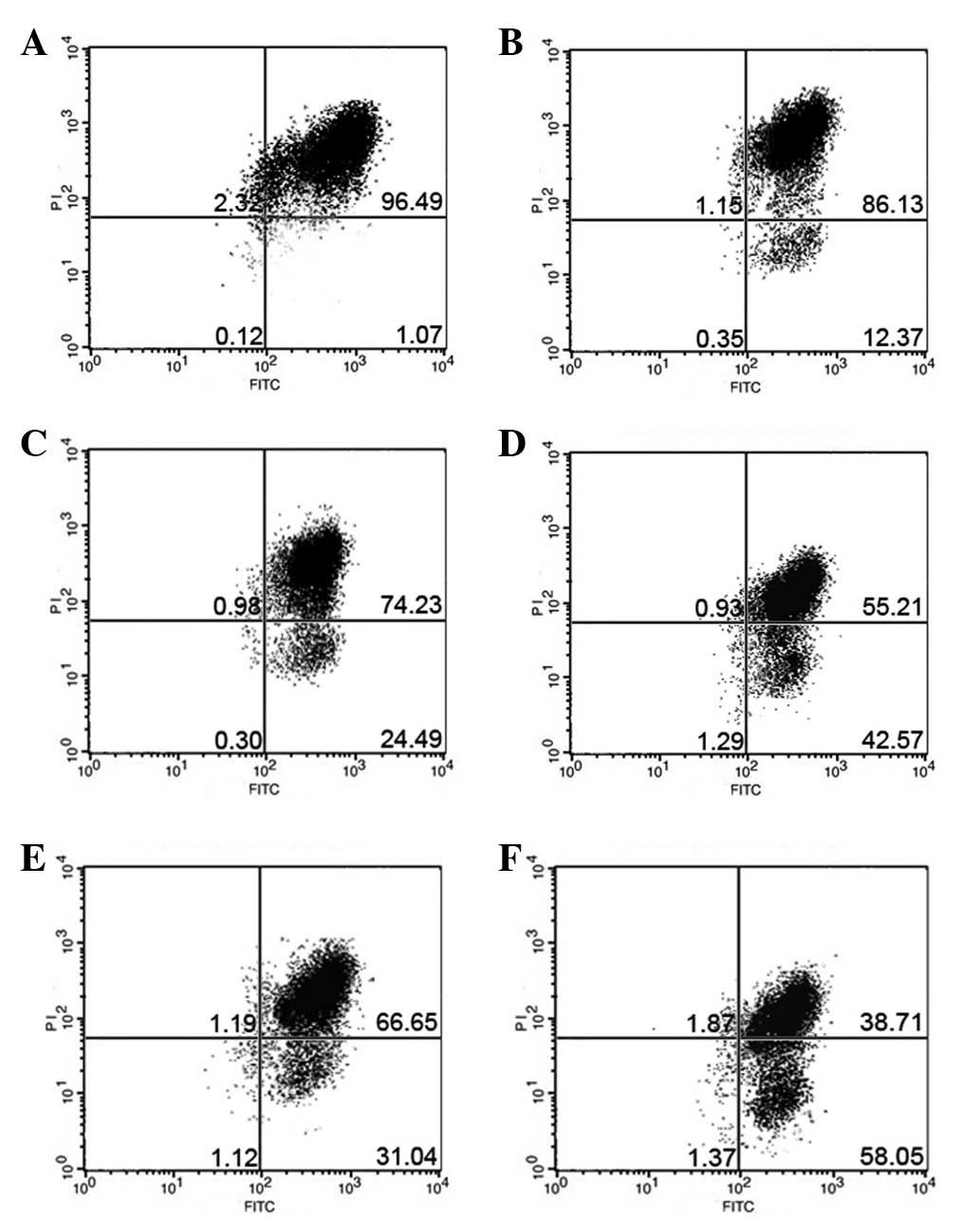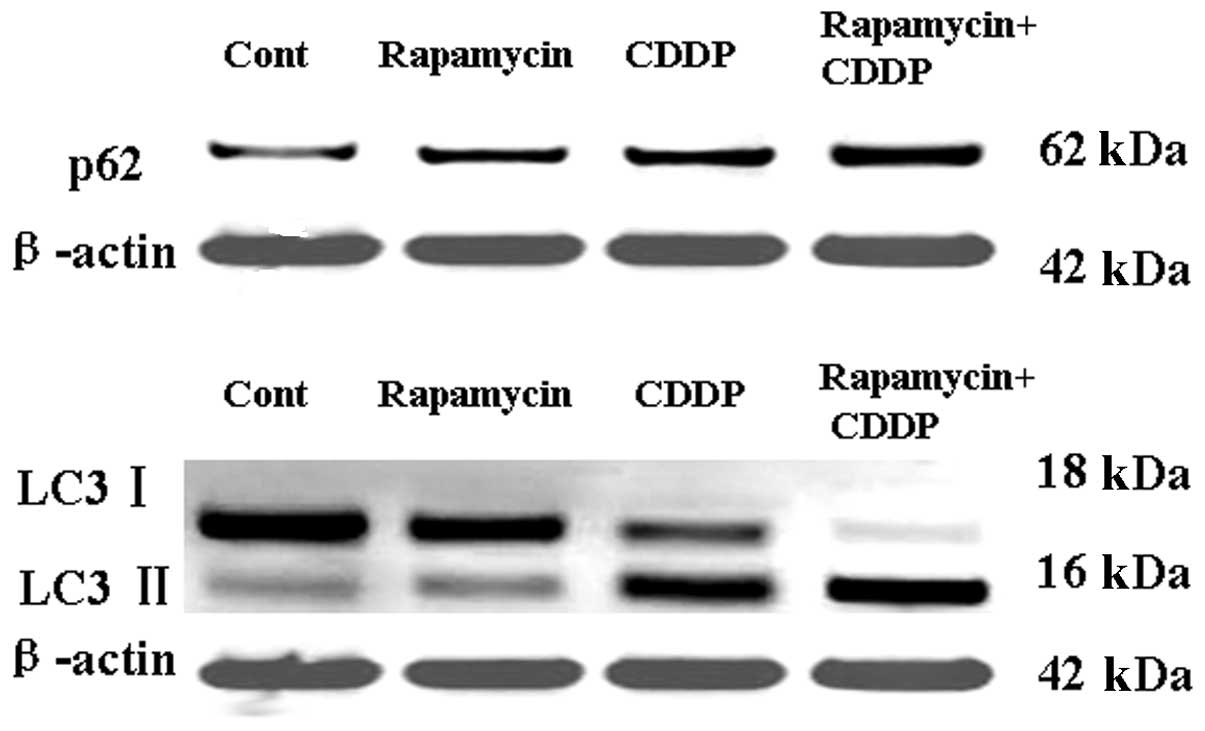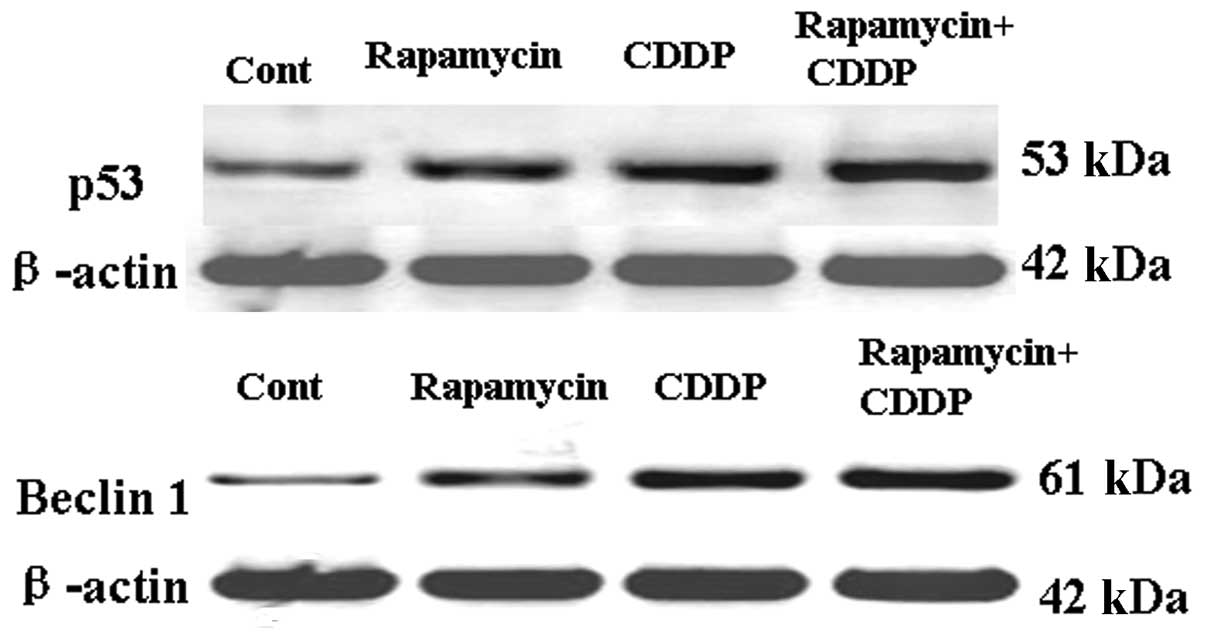|
1
|
Raymond AK, Ayala AG and Knuutila S:
Conventional osteosarcoma. World Health Organization Classification
of Tumors. Fletcher CDM, Unni KK and Mertens F: 4th edition. IARC
Press; Lyon, France: pp. 264–270. 2002
|
|
2
|
Tan JZ, Schlicht SM, Powell GJ, et al:
Multidisciplinary approach to diagnosis and management of
osteosarcoma-a review of the St Vincent’s Hospital experience. Int
Semin Surg Oncol. 3:382006.
|
|
3
|
Ferrari S and Palmerini E: Adjuvant and
neoadjuvant combination chemotherapy for osteogenic sarcoma. Curr
Opin Oncol. 19:341–346. 2007. View Article : Google Scholar : PubMed/NCBI
|
|
4
|
Marcove RC, Miké V, Hajek JV, Levin AG and
Hutter RV: Osteogenic sarcoma under the age of twenty-one. A review
of one hundred and forty-five operative cases. J Bone Joint Surg
Am. 52:411–423. 1970.PubMed/NCBI
|
|
5
|
Akiyama T, Dass CR and Choong PF: Novel
therapeutic strategy for osteosarcoma targeting osteoclast
differentiation, bone-resorbing activity, and apoptosis pathway.
Molecular Cancer Ther. 7:3461–3469. 2008. View Article : Google Scholar
|
|
6
|
Malicdan MC, Noguchi S, Nonaka I, Saftig P
and Nishino I: Lysosomal myopathies: an excessive build-up in
autophagosomes is too much to handle. Neuromuscul Disord.
18:521–529. 2008. View Article : Google Scholar : PubMed/NCBI
|
|
7
|
Winslow AR and Rubinsztein DC: Autophagy
in neurodegeneration and development. Biochim Biophys Acta.
1782:723–729. 2008. View Article : Google Scholar : PubMed/NCBI
|
|
8
|
Orvedahl A and Levine B: Eating the enemy
within: autophagy in infectious diseases. Cell Death Differ.
16:57–69. 2009. View Article : Google Scholar : PubMed/NCBI
|
|
9
|
Cadwell K, Liu JY, Brown SL, Miyoshi H,
Loh J, Lennerz JK, et al: A key role for autophagy and the
autophagy gene Atg16l1 in mouse and human intestinal Paneth cells.
Nature. 456:259–263. 2008. View Article : Google Scholar : PubMed/NCBI
|
|
10
|
Saitoh T, Fujita N, Jang MH, Uematsu S,
Yang BG, Satoh T, et al: Loss of the autophagy protein Atg16L1
enhances endotoxin-induced IL-1beta production. Nature.
456:264–268. 2008. View Article : Google Scholar : PubMed/NCBI
|
|
11
|
Yen WL and Klionsky DJ: How to live long
and prosper: autophagy, mitochondria and aging. Physiology
(Bethesda). 23:248–262. 2008. View Article : Google Scholar : PubMed/NCBI
|
|
12
|
Mathew R, Karantza-Wadsworth V and White
E: Role of autophagy in cancer. Nat Rev Cancer. 7:961–967. 2007.
View Article : Google Scholar
|
|
13
|
Carew JS, Nawrocki ST and Cleveland JL:
Modulating autophagy for therapeutic benefit. Autophagy. 3:464–467.
2007. View Article : Google Scholar : PubMed/NCBI
|
|
14
|
Chen N and Karantza-Wadsworth V: Role and
regulation of autophagy in cancer. Biochim Biophys Acta.
1793:1516–1523. 2009. View Article : Google Scholar : PubMed/NCBI
|
|
15
|
Al-Ejeh F, Kumar R, Wiegmans A, Lakhani
SR, Brown MP and Khanna KK: Harnessing the complexity of DNA-damage
response pathways to improve cancer treatment outcomes. Oncogene.
29:6085–6098. 2010. View Article : Google Scholar : PubMed/NCBI
|
|
16
|
Gewirtz DA: Autophagy as a mechanism of
radiation sensitization in breast tumor cells. Autophagy.
3:249–250. 2007. View Article : Google Scholar : PubMed/NCBI
|
|
17
|
John S, Nayvelt I, Hsu HC, Yang P, Liu W,
Das GM, et al: Regulation of estrogenic effects by beclin 1 in
breast cancer cells. Cancer Res. 68:7855–7863. 2008. View Article : Google Scholar : PubMed/NCBI
|
|
18
|
Buytaert E, Callewaert G, Vandenheede JR
and Agostinis P: Deficiency in apoptotic effectors Bax and Bak
reveals an autophagic cell death pathway initiated by photodamage
to the endoplasmic reticulum. Autophagy. 2:238–240. 2006.
View Article : Google Scholar : PubMed/NCBI
|
|
19
|
Petronilli V, Miotto G, Canton M, et al:
Imaging the mitochondrial permeability transition pore in intact
cells. Biofactors. 8:263–272. 1998. View Article : Google Scholar : PubMed/NCBI
|
|
20
|
Moll UM and Zaika A: Nuclear and
mitochondrial apoptotic pathways of p53. FEBS Lett. 493:65–69.
2001. View Article : Google Scholar : PubMed/NCBI
|
|
21
|
Erster S, Mihara M, Kim RH, Petrenko O and
Moll UM: In vivo mitochondrial p53 translocation triggers a rapid
first wave of cell death in response to DNA damage that can precede
p53 target gene activation. Mol Cell Biol. 24:6728–6741. 2004.
View Article : Google Scholar : PubMed/NCBI
|
|
22
|
Hirsch T, Marzo I and Kroemer G: Role of
the mitochondrial permeability transition pore in apoptosis. Biosci
Rep. 17:67–76. 1997. View Article : Google Scholar : PubMed/NCBI
|
|
23
|
Gozuacik D and Kimchi A: Autophagy as a
cell death and tumor suppressor mechanism. Oncogene. 23:2891–2906.
2004. View Article : Google Scholar : PubMed/NCBI
|
|
24
|
Bursch W, Ellinger A, Kienzl H, Török L,
Pandey S, Sikorska M, et al: Active cell death induced by the
anti-estrogens tamoxifen and ICI 164 384 in human mammary carcinoma
cells (MCF-7) in culture: the role of autophagy. Carcinogenesis.
17:1595–1607. 1996. View Article : Google Scholar : PubMed/NCBI
|
|
25
|
Kanzawa T, Germano IM, Komata T, Ito H,
Kondo Y and Kondo S: Role of autophagy in temozolomide-induced
cytotoxicity for malignant glioma cells. Cell Death Differ.
11:448–457. 2004. View Article : Google Scholar : PubMed/NCBI
|
|
26
|
Paglin S, Hollister T, Delohery T, Hackett
N, McMahill M, Sphicas E, et al: A novel response of cancer cells
to radiation involves autophagy and formation of acidic vesicles.
Cancer Res. 61:439–444. 2001.PubMed/NCBI
|
|
27
|
Kabeya Y, Mizushima N, Ueno T, et al: LC3,
a mammalian homologue of yeast Apg8p, is localized in autophagosome
membranes after processing. EMBO J. 19:5720–5728. 2000. View Article : Google Scholar : PubMed/NCBI
|
|
28
|
Kirkin V, McEwan DG, Novak I and Dikic I:
A role for ubiquitin in selective autophagy. Mol Cell. 34:259–269.
2009. View Article : Google Scholar : PubMed/NCBI
|



















